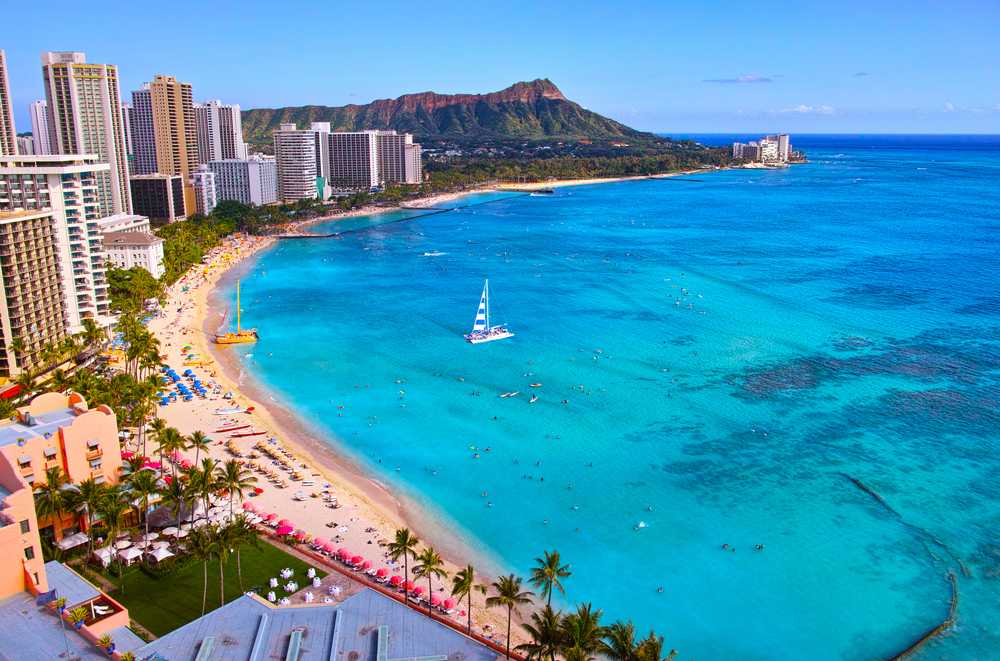Are you thinking about moving to Hawaii? You’re leaning towards the right decision, then. For good reason, living in Hawaii is on many people’s bucket lists. It’s the pinnacle of bliss.
Hawaii has many advantages to offer: Year-round great weather, miles of stunning white-sand beaches, and a plethora of recreational activities. Hawaii’s unique aloha spirit permeates the local culture.
1- What Makes Moving To Hawaii So Special?
Moving to Hawaii allows you to indulge yourself in a tropical paradise. It’s the kind of location where you can toss an avocado core out the window to watch it grow into a tree all by itself. Hawaii can also be your playground if you enjoy watersports. Also, don’t overlook the picture-perfect beaches!
Each place comes with its own set of pros and cons. Despite the paradise vibes, don’t overlook the financial aspects before moving. It is not the same to live in Hawaii as it is to live on the mainland. Before relocating, think about the following points.
2- Expect A Different Culture
Island fever is real. Moving to Hawaii might result in a cultural shock. Some people get a claustrophobic feeling when all they’re surrounded by is an island. The distance between the mainland and Hawaii is 2560 miles by air. Be ready to face isolation as meeting your friends and family frequently won’t be much possible.
3- Costs: Housing & Utility
Hawaii has the lowest tax rates on property in comparison to other states. However, housing and utility costs can be high. The average home value of a house in Hawaii is $842,487 as of 2022. This is higher than prices found in Chicago and Florida. Similarly, rents are also high in the state. Expect the average rent for a one-bedroom apartment to be around $2500.
The energy prices are quite high! According to the US Energy Information Administration, the average retail price of energy in Hawaii is 28.7 cents per kilowatt-hour. Compare this to the 10.5 cents per kilowatt-hour average across the United States. Take these factors into account before moving to Hawaii!
4- Look Into The Job Market
Make sure you secure a job before moving to Hawaii. Finding jobs after you make the move can be quite tough. Hawaii runs on tourism. Most jobs you find will be tourism/service-related. If you do secure a job here, expect good wages. Despite the high cost of living in Hawaii, the median wage in Hawaii is the 10th highest in the country.
5- Estimate The Grocery Budget
If you compare your grocery bill to the one on the mainland, it will be higher. Most of the agricultural products are brought through imports. Imports are mostly expensive. Hawaii’s groceries are the most costly in the US, according to research from the Missouri Economic Research and Information Center. Your best bet to save money on food and groceries is to find local produce as much as you can.
6- Education Costs
The USA ranks Hawaii 39th for education. The state is 14th highest in the country for per-pupil spending. If you’re bringing your children, think about whether you’ll use Hawaii’s public education system of private schools. Your choice will have a significant financial impact on your family.
7- Expects A Lot Of Tourists
Before Covid, Hawaii was getting 500,000 to 600,000 visitors each month. That’s a lot of tourists. Hence, it’s natural to expect big crowds and huge traffic. Running day-to-day errands can become hectic as you wait in long lines. Make sure you have the patience to deal with it.
How Regentology May Help You
Moving to Hawaii? You probably wanna lookout for home-buying options once you settle here for the long run. Contact Regentology whenever that need arises. Regentology will hook you up with the best real estate agents who can facilitate you in finding the right home for you!


